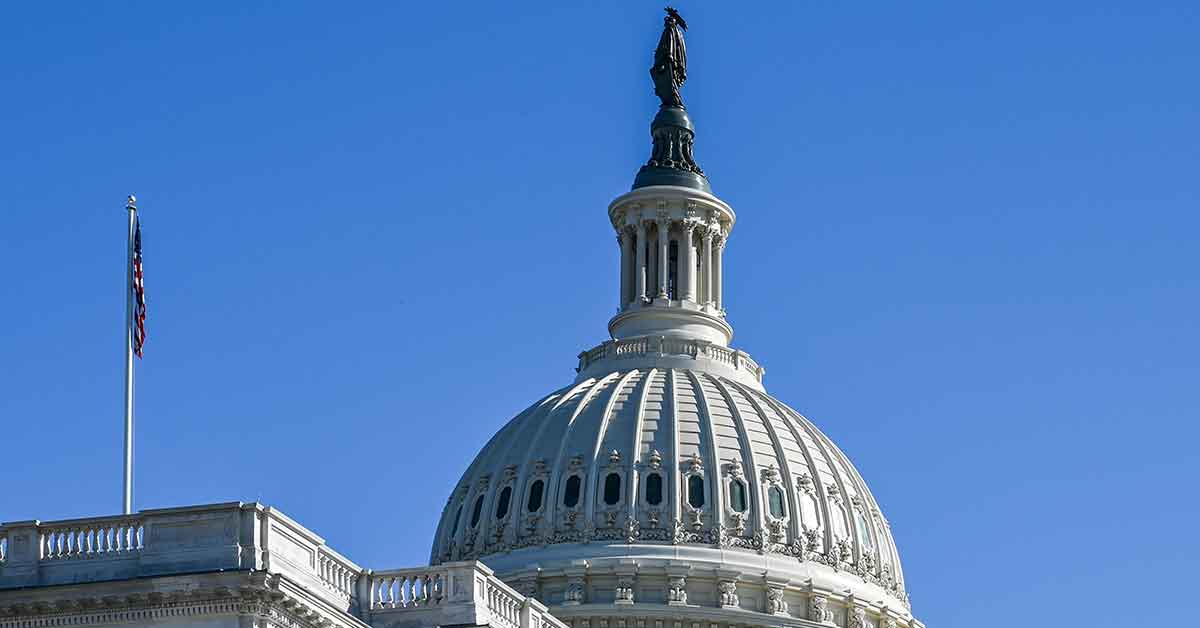Washington Update: April 28
 One day after telling their caucus that the House would be back in session next week, Democratic Leaders changed course today after consulting with the Capitol’s attending physician. The original decision to return to session while Washington, D.C. is still under a stay-at-home order was met with swift criticism from rank and file Democrats. Majority Leader, Steny Hoyer, now says that the House will not return until it is time to vote on the next major relief bill. While it is unclear when exactly that will be, a number of Republicans are still expected to return to D.C. next week to urge Democrats to get back to work. It should be noted that D.C.’s stay-at-home order will last until at least May 15 and multiple police officers and construction workers working in a House office building recently tested positive for COVID-19. At this stage, it is safe to assume the House will not return for at least two weeks, likely three.
One day after telling their caucus that the House would be back in session next week, Democratic Leaders changed course today after consulting with the Capitol’s attending physician. The original decision to return to session while Washington, D.C. is still under a stay-at-home order was met with swift criticism from rank and file Democrats. Majority Leader, Steny Hoyer, now says that the House will not return until it is time to vote on the next major relief bill. While it is unclear when exactly that will be, a number of Republicans are still expected to return to D.C. next week to urge Democrats to get back to work. It should be noted that D.C.’s stay-at-home order will last until at least May 15 and multiple police officers and construction workers working in a House office building recently tested positive for COVID-19. At this stage, it is safe to assume the House will not return for at least two weeks, likely three.
Despite the House’s hesitance to return to business as usual, the Senate will be in session on Monday, May 4. Senate Majority Leader Mitch McConnell has indicated that the Senate is likely to spend most of its time on judicial nominations for now, despite Democratic Leader Chuck Schumer’s calls for the Senate to conduct oversight of federal Coronavirus spending. Negotiations on the next phase of coronavirus relief legislation are ongoing.
Whether it is called “Phase 4” or “CARES 2,” it seems increasingly likely that state and local governments will receive some kind of aid in the next round of legislation, something Democrats have been calling for the last few weeks. While Senator McConnell initially shot down the idea of providing funds for state/local governments, he has begun warming up to the idea publicly, going so far as to call it “highly likely.” Senator McConnell will insist, however, that the funds are tied to provisions addressing liability protections for those states and companies reopening and the frontline workers they employ. President Trump has also spoken positively about it, though in recent comments he did muse about tying aid to sanctuary city and state laws. The President has also been pushing for a payroll tax cut.
Infrastructure spending, a long sought-after goal of both Democrats and the White House, will also be part of negotiations. Senator McConnell has spoken publicly and privately about keeping relief bills focused on addressing the direct impact of the pandemic, which would exclude funding infrastructure projects. That has not stopped Democrats from continuing to craft infrastructure plans at the Committee level. While the President had mentioned infrastructure investment as part of future relief efforts in the past few weeks, he most recently floated the idea of pursuing it in a standalone bill. If Democratic Leadership can convince President Trump, including Treasury Secretary Steve Mnuchin and new Chief of Staff Mark Meadows, that there is no better chance of passing a major infrastructure package than now, Senator McConnell may have no choice but to go with the Administration’s wishes.





